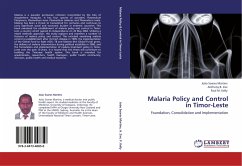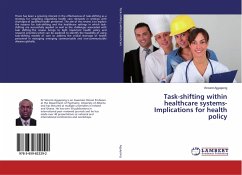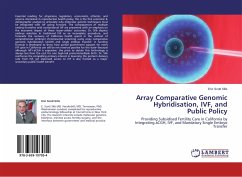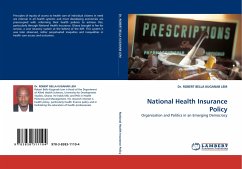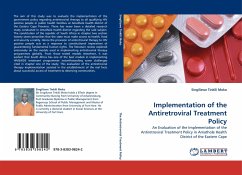Malaria is a parasitic protozoan infection transmitted by the bite of Anophelene mosquito. It has four species of parasites: Plasmodium falciparum, Plasmodium vivax, Plasmodium malariae and Plasmodium ovale. Malaria has been a threat to humankind for centuries and continues to carry Significant social and economic burden in endemic countries. This book examined the establishment of malaria policy and control in Timor-Lest, a country which gained its independence on 20 May 2002. Utilising a mixed methods approach, this study explores and examines a number of features of malaria policy and control. This included examining malaria control re-establishment after its brief collapse in 1999, the implementation of the Global Fund to fight AIDS, TB and Malaria (the Global Fund) grant, the delivery of malaria interventions during political instability in 2006, and the formulation and implementation of malaria treatment policy in Timor-Leste over the past 10 years. It is hoped that this thesis will contribute to building the Timorese health system. This book is intended for academicians, researchers, health managers, public health community, clinicians, public health and medical students.
Hinweis: Dieser Artikel kann nur an eine deutsche Lieferadresse ausgeliefert werden.
Hinweis: Dieser Artikel kann nur an eine deutsche Lieferadresse ausgeliefert werden.

